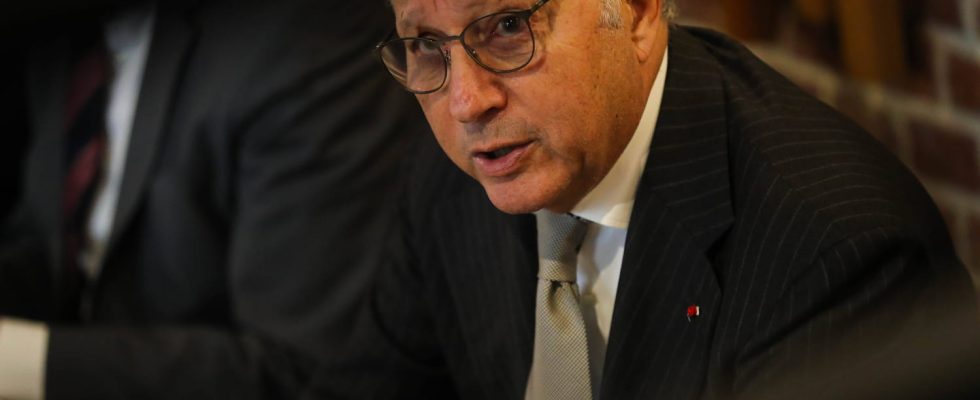Partial censorship of the controversial immigration law could be pronounced by the Constitutional Council this Thursday.
The Constitutional Council, chaired by Laurent Fabius, will deliver its opinion this Thursday on the controversial law on immigration. A long-awaited decision, on a text whose adoption was marked by intense dissension in France at the end of last year. This body, made up of former prime ministers, ministers and eminent jurists, is once again at the center of an intense national debate, occurring only eight months after the pension reform.
The law, which sparked protests in December, includes measures such as restricting family reunification, limiting access to social benefits, and calling into question land rights. These measures, introduced by the senatorial right at the time of examination of the text, are those which are most likely to be rejected by the Council.
The Council under pressure
The situation is all the more complex as the executive, in an unprecedented gesture, admitted to having included provisions “manifestly and clearly contrary” to the Constitution to obtain a majority. Emmanuel Macron himself had asked the Constitutional Council to examine the law without raising specific questions, an approach which aroused mixed reactions, in particular from Laurent Fabius, who recalled that the Council is not “a chamber of appeal for the choices of Parliament”.
The Republicans, under the leadership of Eric Ciotti, also exerted direct pressure on the Council, affirming that the law does not contain a “legislative rider” and recalling that some of its provisions have already been validated in the past.
Partial censorship expected
Among the 86 articles of the law, around fifty are contested, either as legislative cavaliers – provisions which have no place in the bill – or because they would contravene fundamental principles. Although total censorship of the law is considered unlikely, partial censorship is widely expected. This partial censorship, especially of the most conservative measures, would be favorable to the presidential majority. In this scenario, the LR could find themselves in a delicate position, which could lead them to demand a constitutional revision to control immigration, in anticipation of the European elections.
This Thursday, the nine members of the Council will try to overcome these political considerations. Laurent Fabius regularly reminds that the role of the institution is to verify the conformity of laws with the Constitution, even if this implies validating texts which appear inappropriate.
The composition of the Council, predominantly right-wing, should not influence their decision, because, as Fabius points out, they are at an age where they have “no longer anything to hope for or to fear.” Their deliberations, faithful to the institution’s tradition of opacity, will remain confidential, but their decision will be decisive for the future of immigration law in France.
